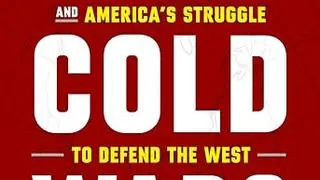A cricketer promises an interview to a leading sports journalist, historian and show host but keeps him waiting till late at night. This is an interview for which the journalist sets aside two other important interviews as he wanted to respect an earlier commitment to this cricketer. It’s late in the evening, well past dinner time when it dawns on the journalist that he has been ghosted - left in the lurch by a cricketer whom he considered a friend and a fellow Bengali. In a moment of despair and frustration, he shoots out messages that the cricketer construes as ‘bullying’ and all hell breaks loose. The cricketer goes to town with his sob story on Twitter (X) and a huge trial by social media begins. To add to the journalist’s woes, there is the stuff that’s playing in the background.
The cricketer has been dropped from the Indian team earlier and the entire narrative is built by the troll army insinuating that it was at the journalist’s behest that cricketer has got dropped from the national side.
The cricketer who tweeted was Wridhiman Saha and the journalist being accused was none other than Boria Majumdar. BCCI took cognizance of the incident and formed a three member committee to probe the threat messages sent out to Saha for declining an interview. It resulted in the BCCI imposing a two-year ban on Boria Majumdar because the BCCI’s three-member committee found him guilty. The book, Banned, is about how life changed for Boria Majumdar and how he coped with all the insults and abuses he was subjected to on social media by the troll army. Pleads Boria in the book that his messages ‘may have been inappropriately worded in the frustration of the moment, but they were never ever intended as a threat, or any kind of harm’.
Credit is due to Boria for having kept quiet for two years of the ban and having respected the judgment, in letter and spirit, even if it was erroneous. The toll, however, that the ban took on him and his family was heavy - and that’s putting it mildly. Besides the trauma of trial by social media where there are no rules and no boundaries, Boria ran the risk of a huge financial impact. His company Revsportz was all about sports and here he was almost declared persona non grata by the most influential cricketing board in the world and the most powerful sports body in India.
Banned is about closure. First there was this self-doubt in Boria’s mind and the uphill tasks of picking up the pieces and moving on. Then there was a need to make his enterprise survive because there were careers of his teammates at Revsportz at stake. Coupled with it all was the agony of feeling as an outcast due to the actions of some members of his fraternity. His feelings are best expressed when he asks ‘how did professional competition become stiffer than the brotherhood one had shared’? By his own admittance, writing this book was a way to channel his angst and to find solace. That Boria and his family suffered a lot is established in the initial chapters and the writing evokes empathy too but the repetition of the sufferings gets a bit too much for the reader. Beyond a point it appears to be a rant of a wounded journalist which has limited appeal for the reader who would rather be served more trivia about sporting icons.
Of course, Banned has some little pearls nested in the text - that of sport legends’ standing by Boria and supporting him and his company for they had seen his work for over two decades before the ill-fated ban happened. There is a cute little story on how badminton guru Pullela Gopichand offered to launch Boria’s book Maverick Commissioner when Boria felt that no sportsperson would touch him with a bargepole. Then there are instances of support for his show Breakfast With Boria where stars such as Sourav Ganguly, Gautam Gambhir, and Shoaib Akhtar came on the show for the World Cup in 2023 pro bono. In fact, the list of sports stars who supported Boria during the two years is long and includes legends such as Michael Clarke, Abhinav Bindra, Neeraj Chopra, Anju Bobby George, Mirabai Chanu, Deepa Malik and many more.
Intriguingly, Boria doesn’t bring up Saha’s name at all and refers to him as ‘The Cricketer’ (Saha had not named Boria in the tweets but did so in the BCCI’s committee’s hearing thus the ban). In fact, he does not reveal a lot of other names and refers to people by their job descriptions and that, at times, is a dampener for the reader. As a sports aficionado one would have loved to have more insights on the things that the sports stars told Boria to lift him up citing their own resilient pushbacks when chips were down or when they were wronged by the system - stuff that Gautam Gambhir mentions in Boria’s show and is reproduced in the book. That would have lifted Banned from merely being a book for the ‘truth being set free’ to a book about resilience painted on a much larger canvass.
(Giraj Sharma is a Delhi-based brand consultant. He runs a platform Reverse Flick wherein sports stars talk about their experiences when they were down and out and how they rewired their mind to bounce back.)
Check out the book on Amazon.









Comments
Comments have to be in English, and in full sentences. They cannot be abusive or personal. Please abide by our community guidelines for posting your comments.
We have migrated to a new commenting platform. If you are already a registered user of TheHindu Businessline and logged in, you may continue to engage with our articles. If you do not have an account please register and login to post comments. Users can access their older comments by logging into their accounts on Vuukle.